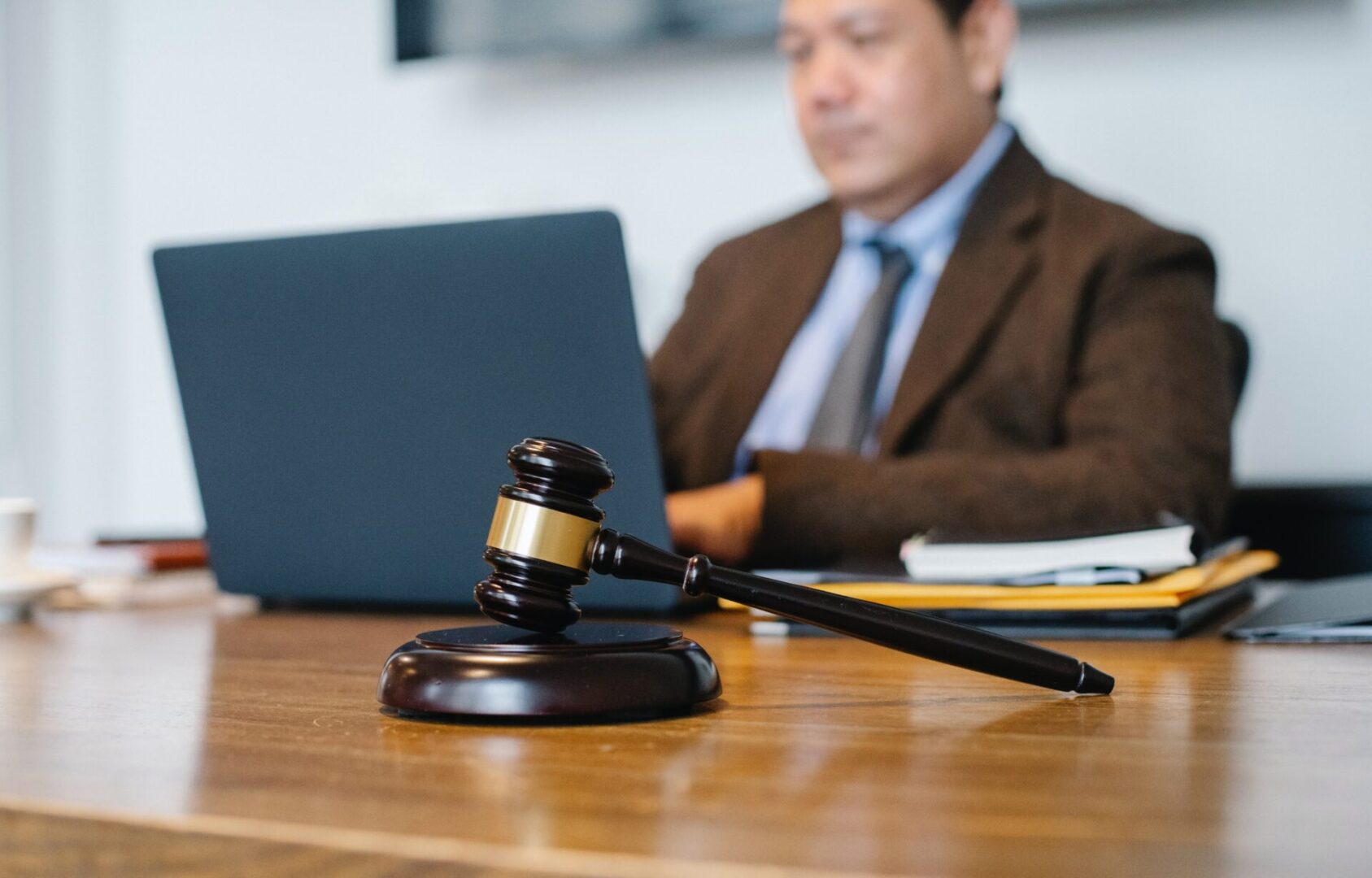Appeals Attorney in Torrance
Fighting on Behalf of Clients in the Los Angeles Area
The appellate courts allow you to “right a wrong.” When a case goes to trial, it is extremely important to get it right the first time. However, sometimes, the jury or judge just gets it wrong. When this occurs, the remedy is an appeal. Your trial attorney must be familiar with appeals in order to provide the best representation possible throughout your case. This is because some appeals, called “appellate writs,” occur as the case progresses.
If you are seeking an appeal, contact a Los Angeles criminal defense attorney at The Law Offices of Decio Rangel Jr. to review your case. We are highly skilled criminal defenders who have successfully represented many clients in appellate court.
How We Help in the Appeals Process Secondary Title
Often, we ask the appellate courts to review legal rulings prior to trial. We do this for two reasons. First, we do not want our clients to appeal a bad decision while in custody. Secondly, if we knock out evidence early, we are often in a stronger position to win the case outright. An appeal may occur after a guilty plea or admission of a probation violation. In these cases, we file a certificate of probable cause to review relevant legal issues after the plea.
Handling Misdemeanor & Felony Appeals in LA
Misdemeanor appeals are heard in the appellate divisions of the superior court, while felony appeals are presented to the California State Appellate Court in the district where the case was first heard. Your attorney will seek out the issues and file the notice with the appropriate court. The timing required to file the appeals varies as to the type of case as well. Misdemeanors, for example, require that a Notice of Appeal be filed within 30 days, while a felony Notice of Appeal generally must be filed within 60 days. Depending on the ruling, the timing varies. Whether your case is a felony or misdemeanor, it is important for your attorney to understand the difference in order to preserve your rights.
Steps of the Criminal Appeal Process
If you are considering a post-conviction appeal, here are the basic steps involved in the process:
1. Notice of Appeal
After a jury verdict, and in some cases after a plea, a notice of appeal should be filed with the trial court so that a higher court, or appellate court, can review the legality of the conviction. In a misdemeanor case, you have a right to remain on bail pending the outcome of the appellate process. On a felony, it is left to the discretion of the court as to whether they will allow you to remain free from custody. The notice is a relatively simple form filed with the trial court informing the courts that you are challenging the result. Depending on the case, the notice of appeal must be filed within the first 30–60 days following the trial court judgment. Your attorney can prepare and file this on your behalf.
2. Preparation of Court Transcripts
After the Notice of Appeal is filed, the court reporter will be ordered to prepare a copy of the clerk’s file (the “Clerk’s Transcripts”) and a copy of the reporter’s notes from the court hearings (the “Reporter’s Transcripts”). Depending on the case, these transcripts can be hundreds of pages long, if not longer. The transcripts are the record of the case. This is what the appellate court will rely upon when they review the legal issues. You may hear attorneys say, “For the record,” while in court. This is because they realize if they do not speak up, they could be barred from raising the issue at a later time. These transcripts will be submitted with the appellate brief.
3. Appellant’s Opening Brief
After the transcripts are completed, we will take them and review everything that occurred during the case. Any legal errors will be reviewed and researched. These will become the issues the appellate court will consider. The party initiating the appeal, known as the appellant, will file the first opening brief. This will outline any errors we would like the appellate court to review. Depending on the issue, the court of appeal will also consider the remedy. More often than not, a request is made to overturn any conviction and send it back to the trial court for further proceedings.
4. Respondent’s Opening Brief
After we submit our brief, the prosecution or respondent will review the transcripts and the defense’s opening brief. They will usually respond and submit their own brief contesting the legal errors claimed by the appellant. This is known as the “respondent’s brief on appeal.”
5. Appellant’s Reply Brief
Because the defense, or appellant, has the burden on appeal, the courts permit the appellant to file a second brief called a “Reply Brief.” This gives the appellant an opportunity to respond to the respondent’s opening brief. Typically, no new issues will be raised at this point.
6. Oral Argument
After the briefing is complete, the attorneys may request oral arguments. This is unlike a trial. Evidence is not presented at this point. The court will not hear new witnesses nor consider any new evidence. Typically, at this court hearing, two appellate attorneys discuss the issues with three Court of Appeal justices. These arguments are usually very short in duration. The attorney's focus is on legal issues only. In criminal cases, if the defendant is in custody, the defendant will not be permitted to attend oral argument.
7. Court Ruling
A panel of three Court of Appeal justices review the transcripts, the briefs filed, and the arguments of the attorneys and conduct their own independent research. Based upon their review of the arguments and the law, the justices will then prepare a written ruling. The written ruling typically contains a summary of the facts of the case, a summary of the arguments raised, and an analysis from the Court as to whether or not the trial court’s judgment needs to be corrected.
Retain a Torrance Appeals Lawyer with 20+ Years' Experience
Our firm believes the best way to attack an appeal is to get a team of legal researchers and appellate lawyers to prepare and present your appeal. We provide the highest quality of criminal defense for individuals in Los Angeles, including Torrance, Inglewood, Gardena, El Segundo, and more!

Torrance Expungement Lawyer
Representing Clients in Manhattan Beach & Surrounding Areas
When you are arrested for committing a misdemeanor or felony crime, a criminal record will be created. The record contains information regarding the arrest, charges, and outcome of the trial. Your criminal record is kept by various law enforcement agencies and can also be accessed by employers, schools, and lending institutions conducting background checks. A criminal record can also affect security clearances and your ability to hold certain professional licenses. Under state law, if you were found guilty of the charges against you or pleaded “no contest,” you can petition to have your record expunged.
Requirements for Expungement
of Records
The qualifications for expungement include:
In an expungement, the judge will set aside the guilty verdict and note the case as dismissed. After your record has been expunged, you will no longer be legally required to state that you have been convicted of a crime.
The Law Offices of Decio Rangel Jr. is a recognized criminal defense firm that has helped many clients erase their criminal past. We can explain the process in more detail and review your criminal record to determine if you qualify for expungement.


Restore Your Reputation with a Torrance Expungement Attorney!
A California Governor’s Pardon is another legal remedy that individuals with a criminal record can use to restore their rights and reputation. When a person receives a pardon, they will regain the right to serve on a jury, as well as own a firearm (excluding deadly weapon cases). Sex offender registration will no longer be required, and state licenses denied to individuals with a criminal history can now be acquired. Pardons are granted based on a person’s productivity and good behavior after their conviction.
Our firm can provide useful counsel regarding pardons and discuss other legal options regarding your criminal record. We serve clients throughout Los Angeles, including Redondo Beach, Hermosa Beach, Inglewood, Long Beach, and Torrance!
